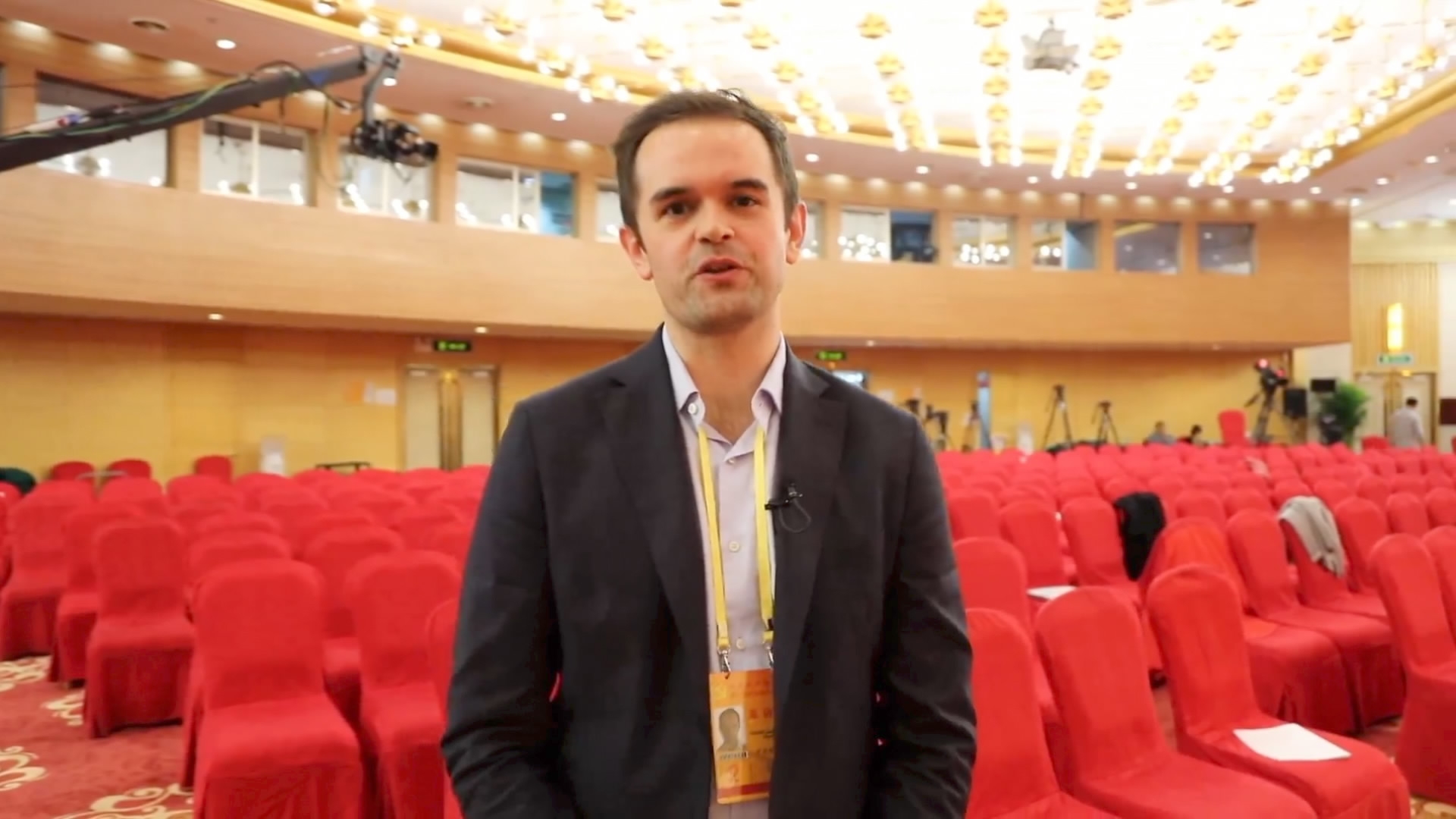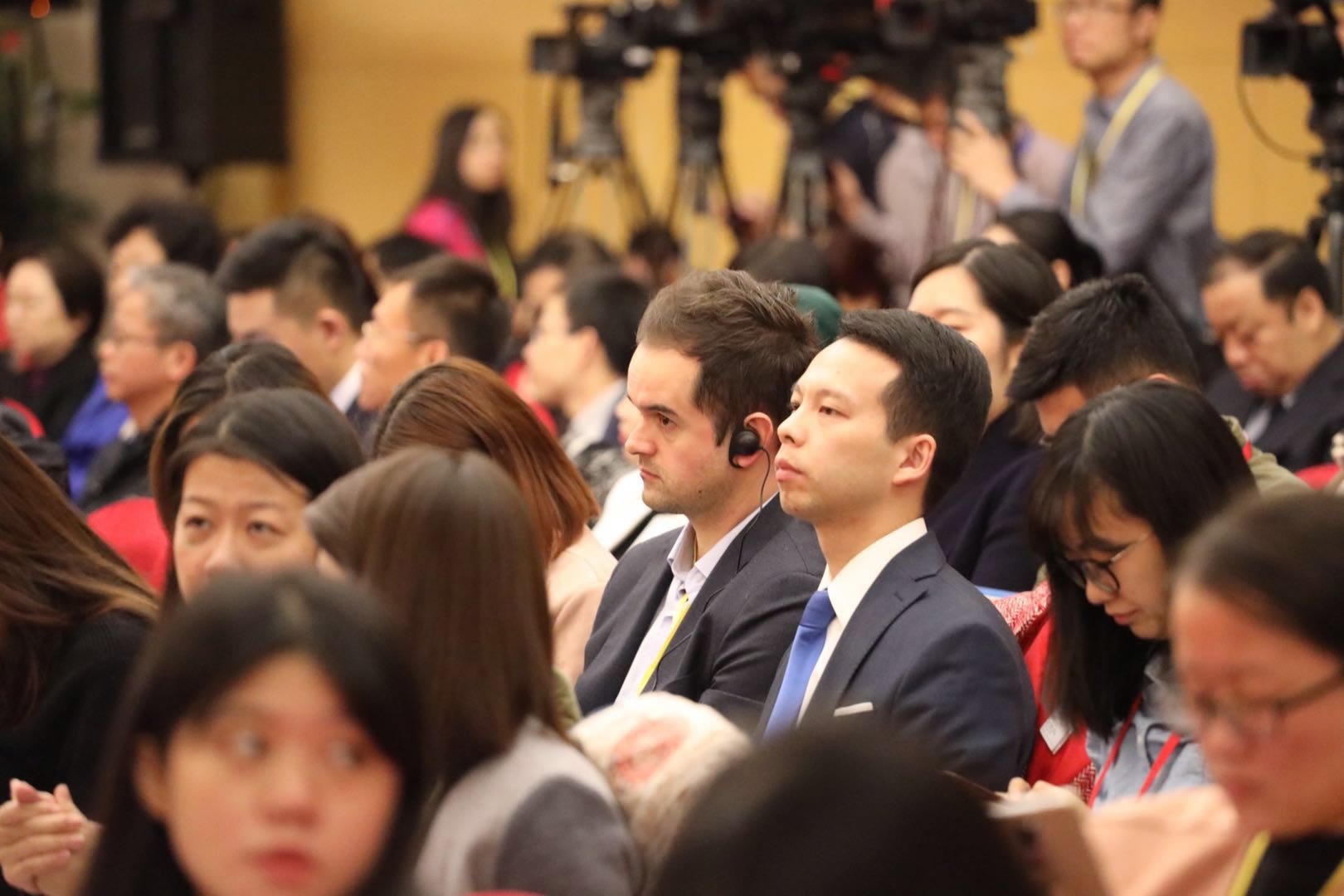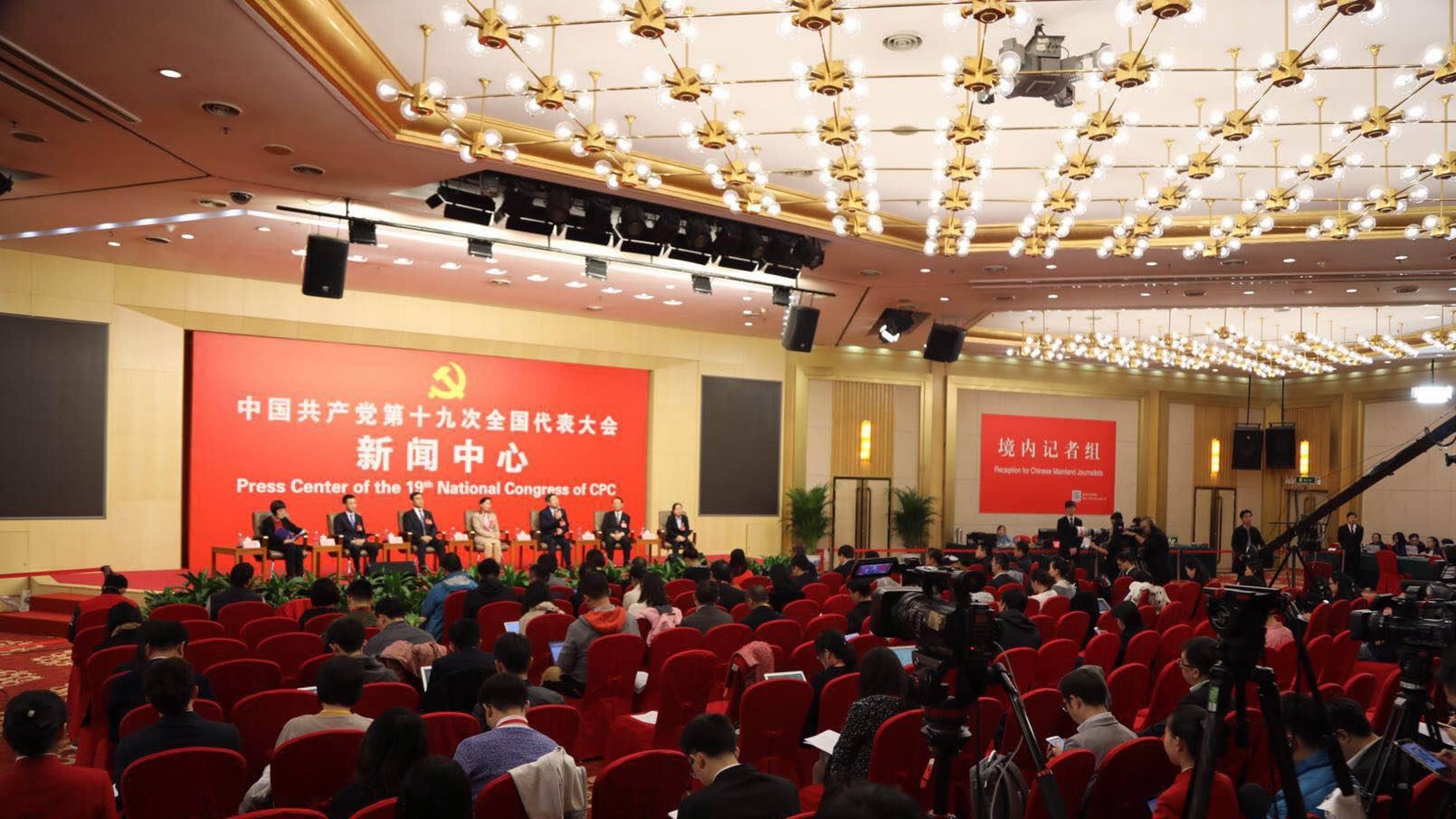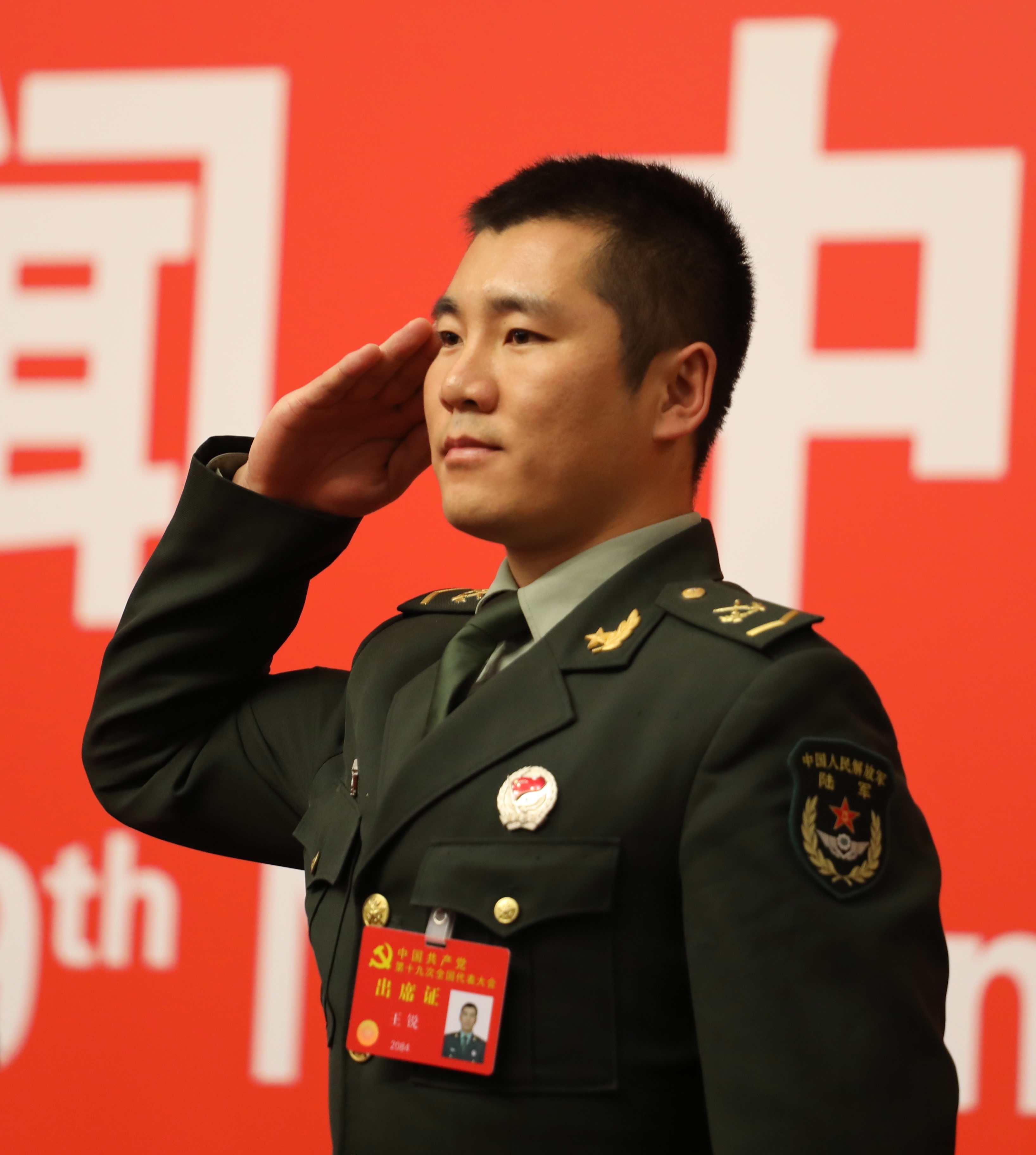
Politics
22:44, 22-Oct-2017
Reporter’s Diary: Facing the ‘principal contradiction’
by CGTN's Nicholas Moore

It’s day five of the 19th CPC National Congress, and it’s my first day reporting from the National Congress press center in west Beijing. It’s 06:30 a.m., I’m tired but excited, as I put my suit on and look forward to the day ahead.
I’ve got an action-packed day ahead of me, with the first press conference at 10 a.m. featuring officials from no less than five government bodies discussing how to best meet people’s expectations and improve livelihoods.
Morning…10 a.m.
I’ve tried to do my homework on the latest policies and pledges from (deep breath…) the Ministry of Education, Ministry of Civil Affairs, Ministry of Human Resources and Social Security, Ministry of Housing and Urban-Rural Development, and the National Health and Family Planning Commission.

CGTN Photo
CGTN Photo
While international media may focus on what’s happening at the highest level in terms of politics and the economy, for me, the ministries delivering this morning’s press conference and the group interview session later in the day are equally important – if not more so.
They direct the policies that directly affect people’s lives in China, and as someone who has lived and worked in this country for over four years, and settled down and married here, these policies affect me too. I care about the city and community I live in, the food I eat, the hospital care my family and I can receive, and maybe one day (gulp) where my kids will go to school.
I enter the press conference, and as expected, foreign journalists are unfortunately thin on the ground. As I listen to each of the five ministers talk about the last five years and their expectations for the future, colleagues back at the office message me screenshots of myself appearing on their television screens – it seems my foreign face has caught the eyes of some TV cameramen.
One of the big themes under discussion is the “principal contradiction” – a term that came up frequently in Xi Jinping’s report, looking at the contradiction in society of balanced and unequal development, and people’s demands for a better-quality lifestyle.
One example in terms of education is that previously, Chinese people simply demanded access to education. Today, in the new era, people demand access to the best possible quality education. How these ministries and, on a wider scale, the Communist Party, addresses this contradiction will be essential to advancing China’s development.
I’m impressed by the way the ministers respond to questions – they are both warm and sincere, while treating their work with utmost seriousness and authority. One journalist asked the panel of ministers for their vision of China in 2049, with laughter echoing around the room.

CGTN Photo
CGTN Photo
Minister of Education Chen Baosheng responded by saying predicting the future was an art form, before treating the journalist’s question with respect and expressing confidence that Chinese education will be world-class by New China’s centenary.
Afternoon… 5 p.m.
Education reform is going to be hugely important in the next five years and beyond for China, and it’s a topic I’m rather passionate about.
With China’s growing stake in international affairs, tomorrow’s generation of workers need to be prepared for a globalized world which requires language skills, creativity, people skills and a thick skin for any bumps along the way. I’m looking forward to hearing how the Ministry of Education plans to prepare China’s children for the world of tomorrow – especially when they will be competing not just with people from around the world, but also with robots, AI and automation for jobs.
As the group interview gets underway, I’m particularly interested by the insights of some of the delegates who are posted in far-flung parts of China’s countryside, with one delegate coming all the way from Xinjiang.

CGTN Photo
CGTN Photo
They gave their views on various topics, such as how to encourage more quality teachers to stay and work in the countryside, education for girls in rural areas and how to make lessons on politics and ideology more appealing to students.
It was great to see their obvious pride in their professions, and their passion for making sure that no child gets left behind when it comes to getting a good education.
Evening… 8 p.m.
After celebrating the 90th anniversary of the founding of the People’s Liberation Army in August this year, the country’s pride for the development and history of the armed forces is clear to see.
There may be a so-called “China fear” rhetoric bandied about by some Western media, but study China’s 19th and 20th century history and anyone can understand why this country and its people both need and welcome a strong military, and the PLA is a force in which China can have immense pride.
I come from the UK, a country with a strong military tradition, and have some close friends back home serving in the army. To put your life on the line in the face of adversity and with the belief that what you are doing is for the greater good is incredibly admirable, and China’s growing presence on the international stage in terms of its UN peacekeeping efforts deserves utmost global respect.

Commander Wang Rui, Combined Arms Brigade, the 74th Combined Corps, People's Liberation Army /CGTN Photo
Commander Wang Rui, Combined Arms Brigade, the 74th Combined Corps, People's Liberation Army /CGTN Photo
I had the privilege of taking part in a live broadcast with two of CGTN’s finest journalists, especially when it comes to military affairs – Han Bin and Nathan King. As a precursor to the final group interview, Han and King gave their insights and expert knowledge on all things military.
Watching them both bounce off each other while sharing their insights into Pacific Rim exercises, how China’s military works alongside its diplomacy and what the future holds for China-US ties was hugely impressive.
It’s been a long day, but one that will stay with me for a long time – the opportunity to report live from China’s biggest political event is, as the cliché goes, a story to tell the grandchildren one day, and one that I can proudly share with my family, friends and colleagues.

SITEMAP
Copyright © 2018 CGTN. Beijing ICP prepared NO.16065310-3
Copyright © 2018 CGTN. Beijing ICP prepared NO.16065310-3